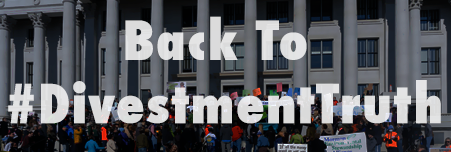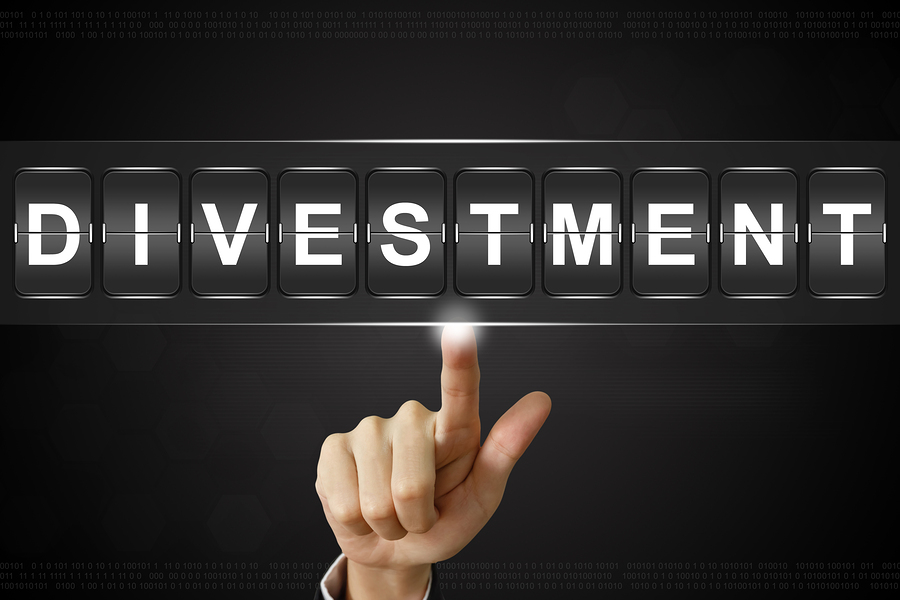Op-Ed: The Divestment Delusion

With “Global Divestment Day,” aka Global Poverty Day, right around the corner, we thought we’d re-post this informative piece from Travis Fisher, an economist at the Institute for Energy Research. The piece, “The Divestment Delusion,” originally appeared in National Review. Enjoy.
The Divestment Delusion
Fossil-fuel divestment is not “moral”; it’s mad.
By Travis Fisher
For a moment during his climate speech on June 25, President Obama joined the fossil-fuel-divestment movement when he said, “Invest. Divest. . . . Make yourself heard.” The leading group of divestment activists, 350.org, said, “Obama’s shout-out to the fossil fuel divestment movement is a huge endorsement.” But what did Obama endorse, exactly?
The goal of the fossil-fuel-divestment movement is for “institutional leaders to immediately freeze any new investment in fossil fuel companies, and divest from direct ownership and any commingled funds that include fossil fuel public equities and corporate bonds within 5 years.”
Divestment activists claim their movement rests on the same moral foundation as the movement to divest from South Africa during apartheid. The website gofossilfree.org, a spin-off of 350.org, tells the success story of the latter movement:
By the mid-1980s, 155 campuses — including some of the most famous in the country — had divested from companies doing business in South Africa. 26 state governments, 22 counties, and 90 cities, including some of the nation’s biggest, took their money from multinationals that did business in the country. The South African divestment campaign helped break the back of the Apartheid government, and usher in an era of democracy and equality.
Comparing the anti-fossil-fuel movement to the anti-apartheid movement is shameful. The anti-apartheid movement fought to free oppressed South Africans from their racist government. The fossil-fuel-divestment movement, in contrast, isn’t fighting political oppression or racism. It’s fighting the energy Americans rely on to live their lives. It’s crucial to note that over the last decade, petroleum, natural gas, and coal provided 87 percent of our energy. Data from 2011 show that wind and solar power contributed less than 2 percent of our energy. We should call the fossil-fuel-divestment movement by its true name — the energy-divestment movement.
Furthermore, victory in South Africa was a laudable goal — it meant equality under the law for all citizens. “Victory” for the energy-divestment campaign would mean subjecting every American to expensive, unreliable energy in exchange for a negligible change in global temperature. It’s important to keep in mind that even if the U.S. immediately stopped all carbon dioxide emissions, by 2050 the global temperature “savings” would only amount to just over a tenth of a degree Fahrenheit.
Ignoring the numbers, energy-divestment activists continue to frame the issue as a moral imperative. Their propaganda includes lines such as, “If it is wrong to wreck the climate, then it is wrong to profit from that wreckage.” The demand of that moral imperative is to immediately divest yourself of any holdings in fossil-fuel-related companies, and to convince everyone you know to do the same. Once university board members join the movement, voilà! Fossil-fuel companies start to go under. But is a world without fossil fuels a more moral place?
What about the moral imperative to keep your child cool during a hot summer day, to provide students reliable light for studying at night, to travel hundreds of miles to be with your family on a special occasion? Without fossil fuels, these essential parts of modern life would be prohibitively expensive, if not outright impossible. In that sense, fossil fuels free us from a harsh state of being (too hot, too dark, too far from friends and family — whatever the case may be). They make possible our humane and comfortable standard of living.
This conflict between moral imperatives — between the living standards made possible by abundant energy and the perceived climate catastrophe — should present divestment activists with an ethical dilemma, but they fail to recognize it. Divestment activists: Why do you think it is moral to wreck people’s access to energy?
Energy sounds like an abstract concept, but it’s not. It’s so central to modern life that we tend to take it for granted. It’s what makes everything possible. It’s the glow behind the computer screen in front of you. It’s how you got to work today. It’s the miracle that, when you go home and turn on the light switch, a power plant hundreds of miles away lights the room, whether the wind is blowing or not, rain or shine, day or night. Why do divestment activists think it’s right to ruin that? More important, why did the president endorse them?
— Travis Fisher is a policy associate at the Institute for Energy Research in Washington, D.C.






